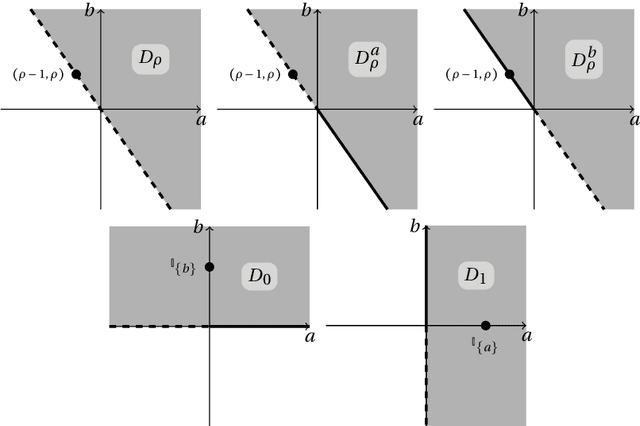Arthur Van Camp
The logic behind desirable sets of things, and its filter representation
Feb 16, 2023Abstract:We identify the logic behind the recent theory of coherent sets of desirable (sets of) things, which generalise desirable (sets of) gambles and coherent choice functions, and show that this identification allows us to establish various representation results for such coherent models in terms of simpler ones.
Lexicographic choice functions
Jul 10, 2017
Abstract:We investigate a generalisation of the coherent choice functions considered by Seidenfeld et al. (2010), by sticking to the convexity axiom but imposing no Archimedeanity condition. We define our choice functions on vector spaces of options, which allows us to incorporate as special cases both Seidenfeld et al.'s (2010) choice functions on horse lotteries and sets of desirable gambles (Quaeghebeur, 2014), and to investigate their connections. We show that choice functions based on sets of desirable options (gambles) satisfy Seidenfeld's convexity axiom only for very particular types of sets of desirable options, which are in a one-to-one relationship with the lexicographic probabilities. We call them lexicographic choice functions. Finally, we prove that these choice functions can be used to determine the most conservative convex choice function associated with a given binary relation.
Exchangeable choice functions
Mar 06, 2017Abstract:We investigate how to model exchangeability with choice functions. Exchangeability is a structural assessment on a sequence of uncertain variables. We show how such assessments are a special indifference assessment, and how that leads to a counterpart of de Finetti's Representation Theorem, both in a finite and a countable context.
 Add to Chrome
Add to Chrome Add to Firefox
Add to Firefox Add to Edge
Add to Edge